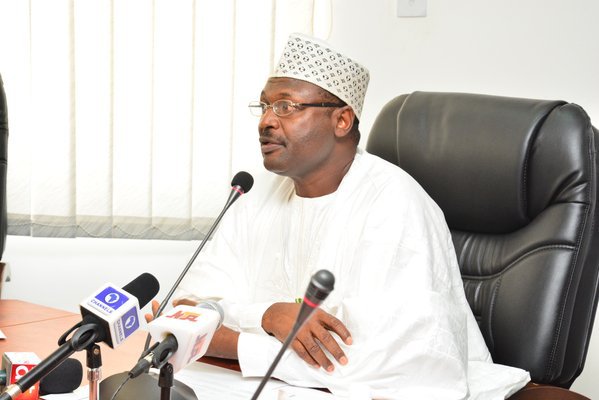The Independent National Electoral Commission (INEC) on Wednesday said it had withdrawn and re-issued over 70 certificates of return after the 2019 general elections.
Mr Festus Okoye, INEC National Commissioner, Chairman, Information and Voter Education Committee, said this at an electoral reform round-table organised by the Nigeria Civil Society Situation Room and the Kofi Annan Foundation in Abuja.
Okoye said that one of the biggest challenges facing the commission is the large number of pre-election matters that are still pending in various courts of law.
“As at today, the commission has a total of 809 pre-election matters while we have just 800 post-election matters, so the implication is that we have more pre-election matters than post-election.
“As at yesterday, the commission has withdrawn and reissued over 70 certificates of return that were previously issued to those who were elected into the various states and national assembly positions.
“There are more that we are still withdrawing and more that we are still re-issuing, some of these things arose from the not too transparent party primary elections that were conducted by the various political parties.
“It is really a source of concern that up till today, there are still a number of cases arising from pre-election matters in courts,’’he said.
Okoye said that one of the things the commission is looking at is whether the fourth alteration to the Constitution of Nigeria would properly address the issue of pre-election matters.
He said this is because the fourth alteration, gave the court of first instance a total of 180 days within which to determine cases and issues arising from pre-election matters.
“But 180 days from the period of the conduct of party primary elections and the end of substitution period dovetailed into the conduct of elections and even beyond.
“This more or less distorts what the commission’s activities and also puts it on edge in terms of knowing which political parties would be on the ballot and which would not,” he said.
He said that the commission is looking at a situation where it could shorten the regime of the determination of pre-election matters to make it possible for it to have some level of sanity before going into any major election.
Okoye said that the issue of the number of political parties is also a challenge because the ballot papers are getting longer and the result sheets are getting bigger and creating a big challenge for the voters.
He said that the number of political associations waiting to be registered are more than the existing ones adding that if they are registered Nigeria would have over 200 parties in 2023 elections.
“So I think we need to have a national conversation to see whether we really need the number of political parties in existence in the country or not,’’Okoye said
He called for the necessary reforms to be put in place.
The European Union Ambasador, Mr Ketil Karlsen said that the union made recommendations from its election observations not to castigate Nigeria but to instigate reforms to strengthen the electoral process.
Karlsen said that four years is not a long time to begin electoral reforms and urged the nation to consider a wider form of reform to enhance inclusiveness especially of women.
Mr Idris Wase, Deputy Speaker, House of Representatives, reiterated the 9thassembly’s commitment to carrying out electoral reforms to strengthen Nigeria’s democracy.
“We will partner together with all stakeholders for the purpose of improving our laws, we will begin now and not wait till the end of our tenure to start it,’’ Wase said.(NAN)

